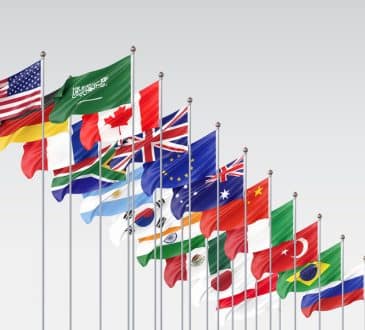The Incredible Power of the Productivity Pyramid

In dealing with clients, both corporate and individuals, I find myself constantly repeating one word – simplify. It’s amazing just how people and especially businesses complicate things. One summer during my college years, I had the privilege of having an internship at FedEx, a name synonymous with speed. It was an eye-opening experience as I learned just how little different departments in big companies talked to one another. You’d think corporations such as Panasonic or GE are well-oiled machines having been in business for decades, but when it comes to communication, their size can actually be a detriment. Each department is responsible for their individual tasks meaning they sometimes act as individual entities under one roof.
When I sat down to design my own time management program, I knew that simplicity would be at its core. The one thing I struggled with was coming up with a single concept that held it all together. I wanted something visual, that people could easily remember. A few weeks back, it hit me. I could rearrange the components into three main areas to form a pyramid. The Productivity Pyramid was born.
So what is it and what makes it so powerful? Most CEOs, executive, and managers have so much on their plates already, the last thing they need is something tricky or time-consuming to implement. The Productivity Pyramid is all about speed. It consists of the base (internal), and the two sides (external and tools). While everyone out there is looking for a new strategy, app or program that will boost their productivity to new heights, the truth is most people struggle with the base more than any other area. Strategies, tactics, and environment are easy to adopt with a strong foundation.
Jim Rohn, the late great business philosopher, used to say, “Some people don’t do well, because they don’t feel well.” A lesson I learned well last year when I had sciatica. It’s hard to be productive when simply getting to the office is a challenge. It’s hard to be creative when you feel pain just sitting down.
To make sure we’re in a position to take advantage of our environment and all the tools and strategies available to us, the first step is to make sure our body and mind are performing at a high level. That consists of our diet (fuel for our body), the books we read (fuel for our mind), exercise (physically capable), relaxation (to maintain optimum levels), breathing and sleeping (possibly the most overlooked concepts in productivity) and the habits that hinder and help us without us even noticing (in the background). In working with high-level executives, I’m amazed at just how many of them neglect one or more of these areas. Take exercise. We all have the necessary twenty minutes a day to do yoga, sit-ups, planking, jogging, jump rope or weight lifting, yet how many of us fail to do so. It’s what I refer to as “letting it slide.” We want to, plan to, but don’t. Or we tell ourselves we’ll do it tomorrow. This is as true for exercise as it is for our habits and diet.
That’s where bite-size components of the pyramid come in. It’s tough to change habits that have been instilled over years in days, but we can take a step in the right direction. Instead of 20 minutes exercise a day, start with five. Instead of sleeping five hours a night, make it six. For most people, small changes are more palatable, than going cold turkey.
Here are two of my favorite “bites” in the pyramid to help you start getting control of your time.
Numerous studies done on email have revealed just how destructive our inbox can be to our productivity. We all have priorities we need to address, but opening our email first thing takes our brain away from being proactive to reactive. Our minds can’t handle focusing on more than one thing at a time, so imagine just how much reading our email first thing must impact our mind’s ability to focus. It’s information overload. Simply by checking our email in the first hour of the day, we lose 27% of our productivity over seven days.
Zero Bubble
Nearly every productivity expert (myself included) believes in the importance of creating block-time in order to get things done. I refer to this as “zero bubble.” You want to create a bubble of sorts around you, zero distractions. Turn off your phone. No social media alerts on your computer. And if you don’t need Google, just unplug yourself from the web entirely. Many executives say it’s just not feasible, but I’ve found it to be an excuse. We can all create those bubbles, the problem is most of us have filled up our days with insignificant activities. When Mark Parker became CEO of Nike he had a conversation on the phone with Steve Jobs about their new collaboration called Nike+. After they finished discussing the project, Parker asked Jobs if he had any advice for him. At first, he said, “No, you’re great.” But then there was a pause, “Well, I do have some advice because Nike makes some of the best products in the world, but you also make a lot of crap.” Apple has succeeded in building the biggest tech company by focusing on a few simple products. There’s something to be learned from that.
Bring the best of the CEOWORLD magazine's global journalism to audiences in the United States and around the world. - Add CEOWORLD magazine to your Google News feed.
Follow CEOWORLD magazine headlines on: Google News, LinkedIn, Twitter, and Facebook.
Copyright 2025 The CEOWORLD magazine. All rights reserved. This material (and any extract from it) must not be copied, redistributed or placed on any website, without CEOWORLD magazine' prior written consent. For media queries, please contact: info@ceoworld.biz








